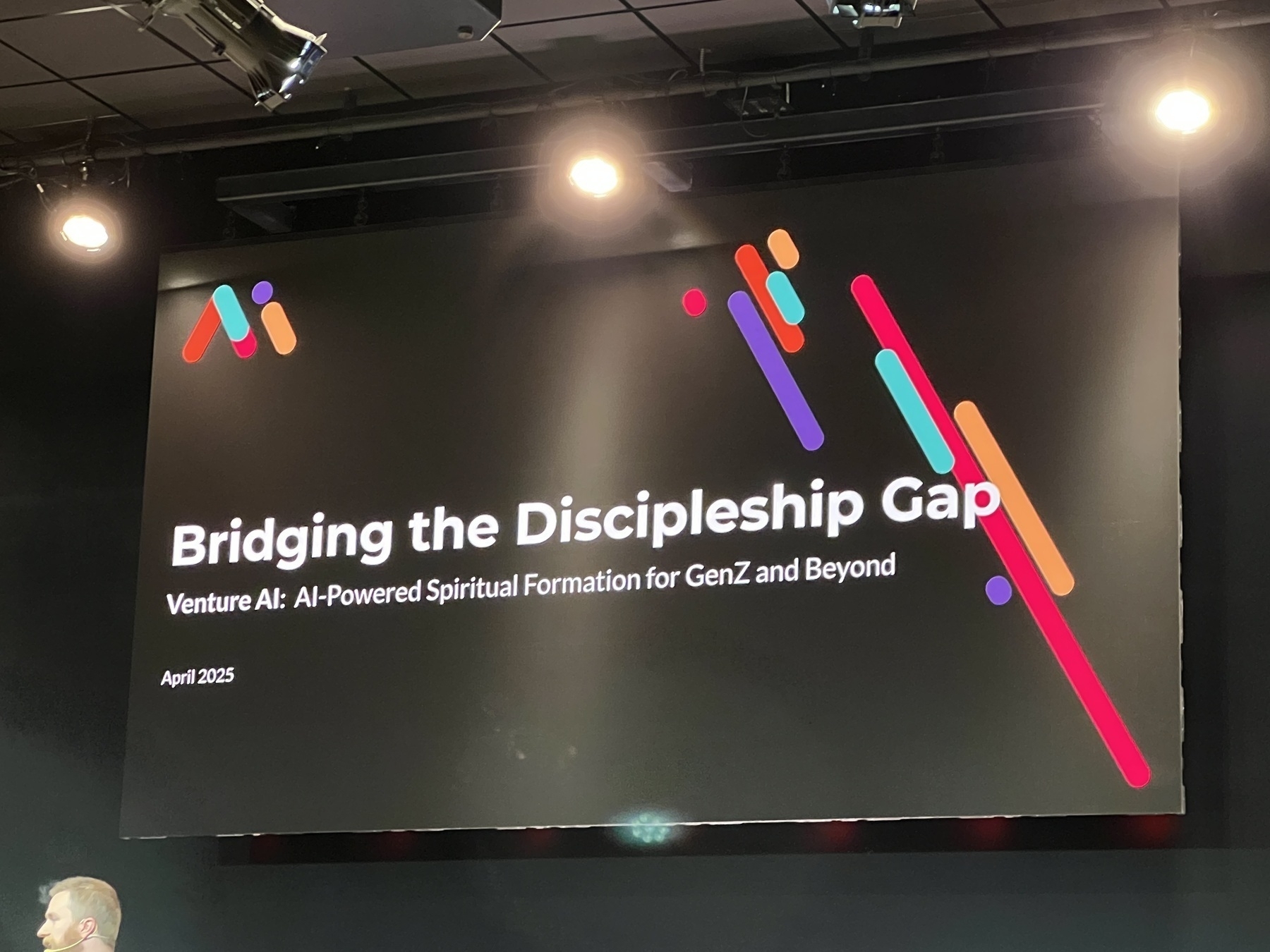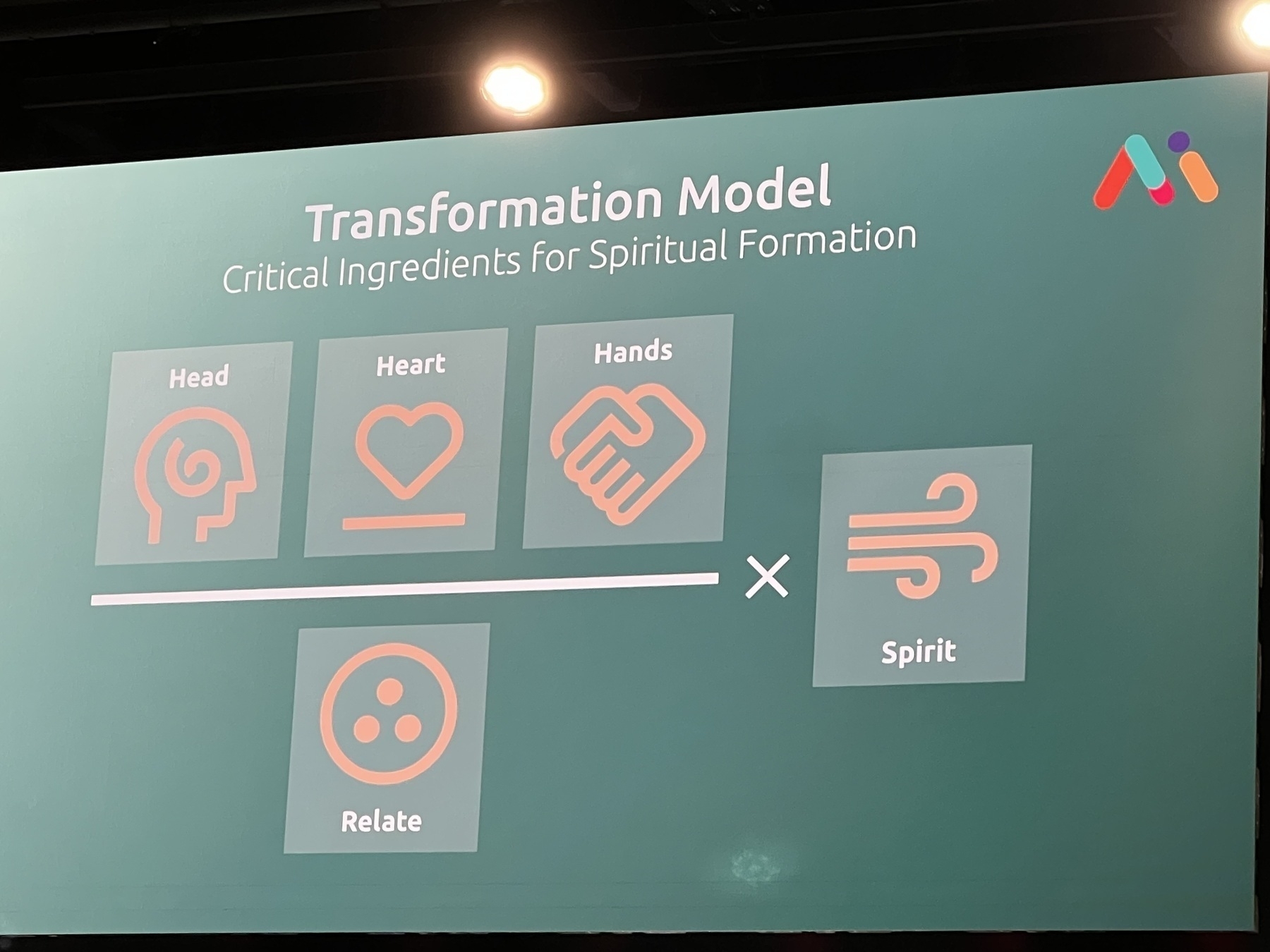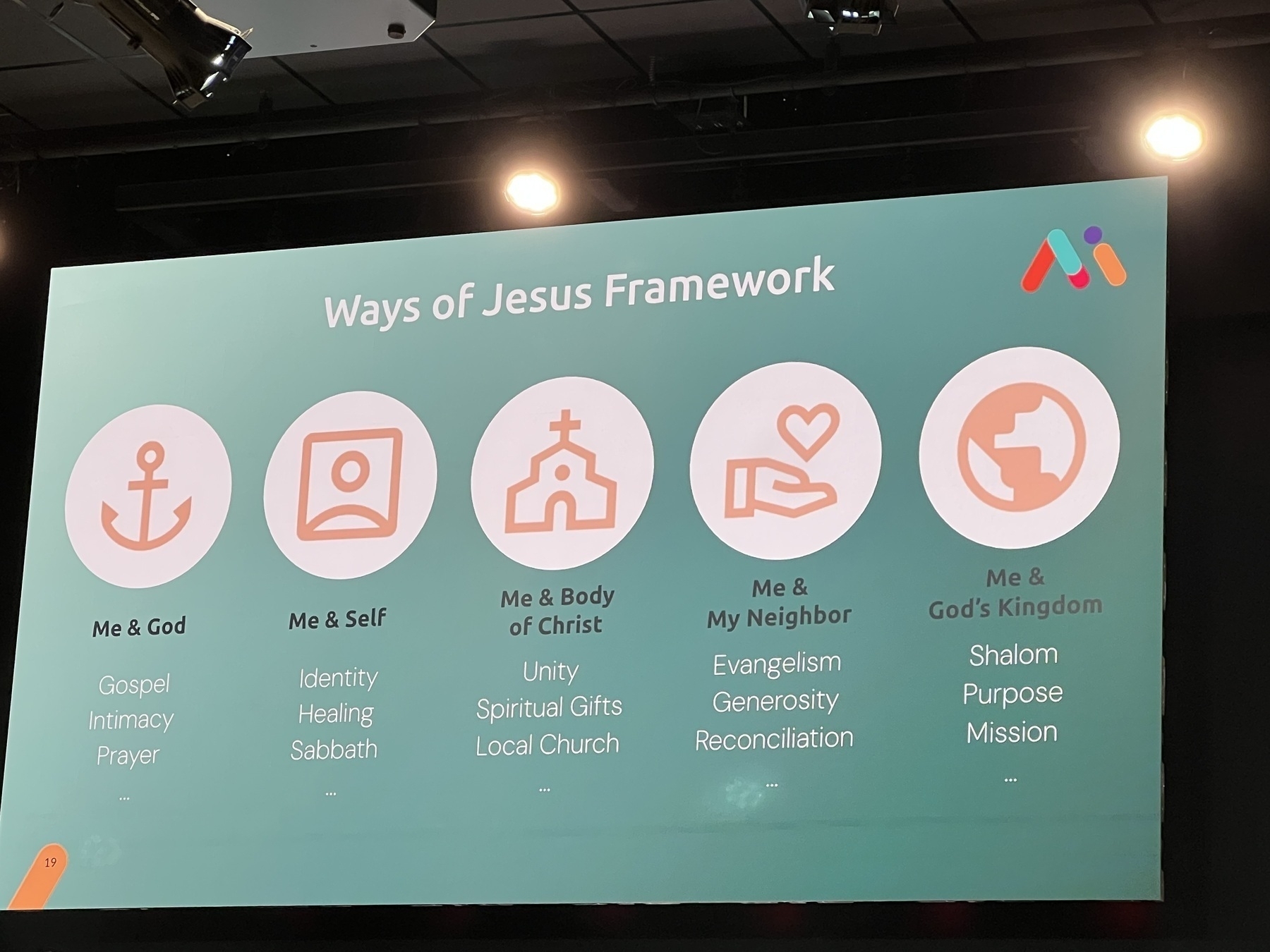The Morning #Devotion at Missional AI 2025 is by Geof Morin of Biblica on the topic of #Jesus and #Technology
Full notes will be posted after.
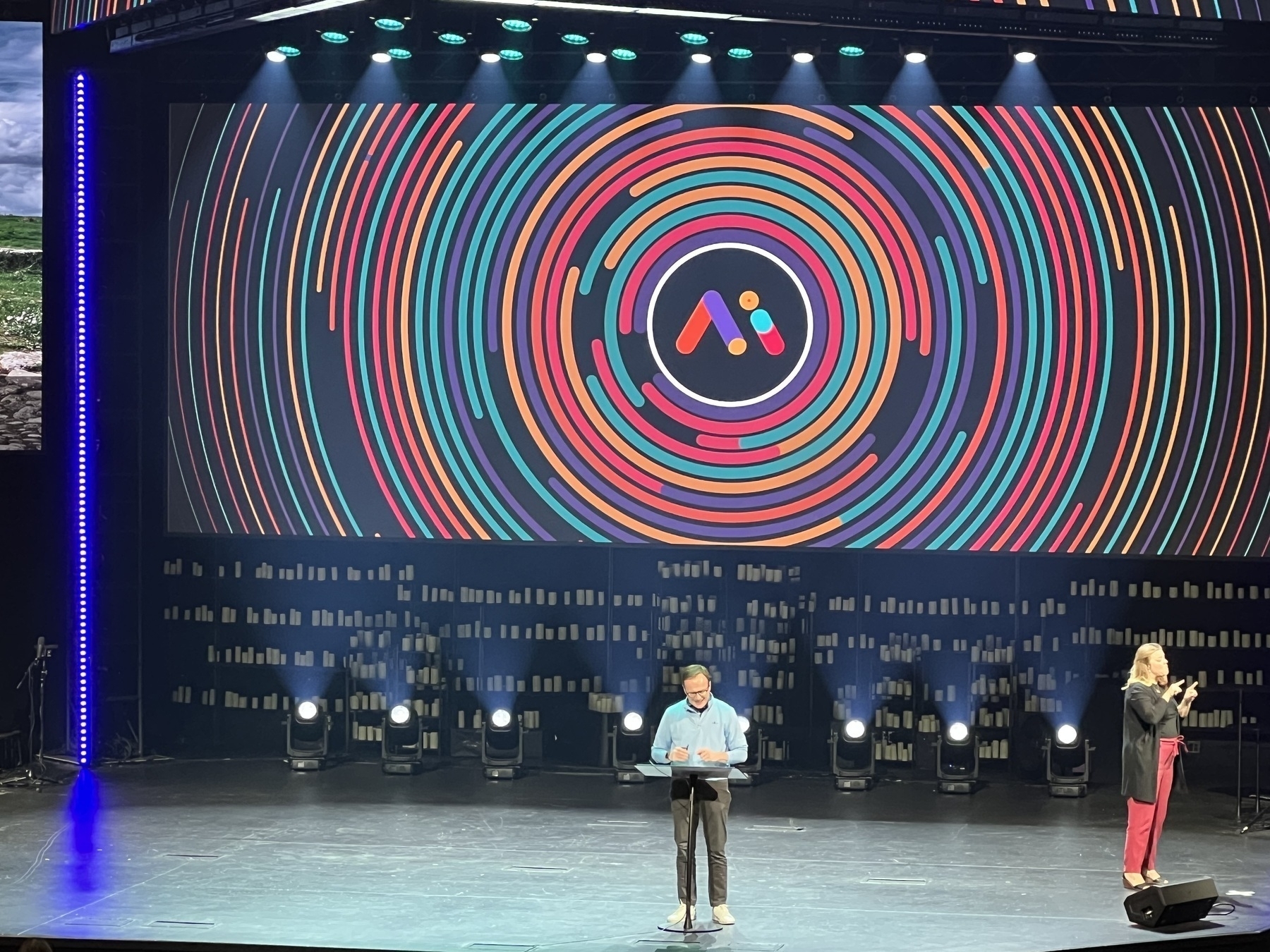
The Morning #Devotion at Missional AI 2025 is by Geof Morin of Biblica on the topic of #Jesus and #Technology
Full notes will be posted after.

You don’t ask good questions if you consistently think you’re right about everything. - paraphrase of Jordan Peterson
Scott Meyer - Co-Founder of Chipp.AI
AI is your chance to have a teammate.
AI is great at what you hate.
Three types of knowledge:
AI Models can be
When interacting with AI, think of a sandwich, you are the bread on the top and bottom.
When Prompting use the RIPE
Step Prompting is a way to break big tasks into smaller tasks.
Branch Prompting is creating a decision tree for the AI interactions.
The Privacy Pyramid (see image)
Moving into the build phase.
Scott led us through a demo using Chipp.AI
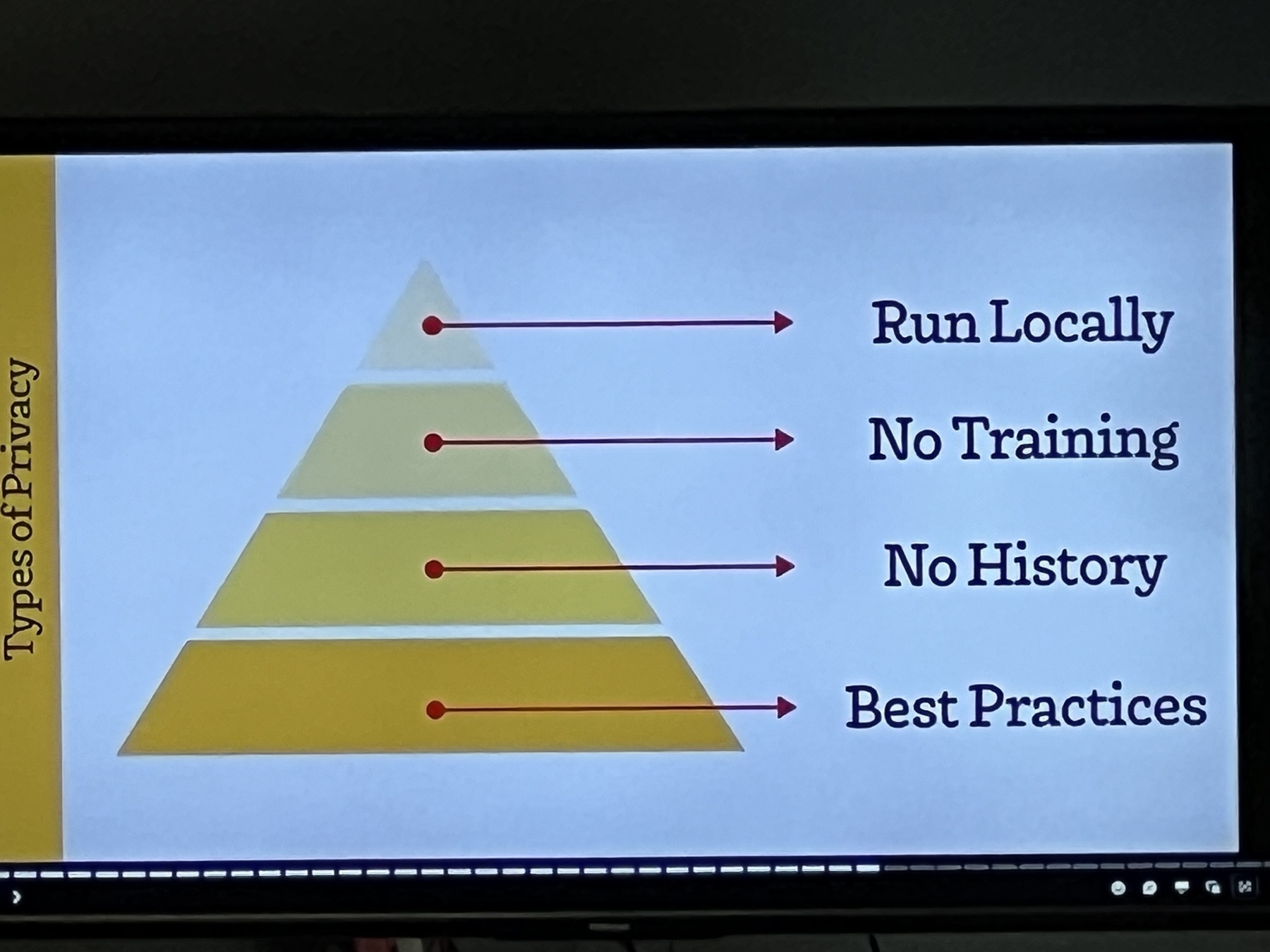
Kevin Peters is from Avid AI - Avid AI sits on top of the data to support marketing and fundraising
AI definitions for this session. There are four times of AI in the context of nonprofits:
He won’t be talking about the last two types (he’ll only discuss ML and LLMs)
ML takes 3 key forms in today’s nonprofit software
The more donors share the more they give. This includes if they share to multiple organizations. If they share to multiple organizations, they’ll give more to all organizations.
There is a potential problem with the current ML models. ROI is 80 cents on the dollar.
ML Models should be made if they’ll
Realistically, you should have 5K+ donors in order to create a good model (rough estimate). Also, are you collecting enough and the right data to make a good model?
What are segments worth modeling?
Technology to consider:
There is a definite problem with scraping the internet for data.
LLMs didn’t know what good looked like.
Remember you market to your actual donor pool.
LLMs are good for:
Technology to consider:
A Technology to Know About
Next up is Barbara Villasenor telling the story of how the Inter-Belief Network (IBN) formed at Google.
Disclaimer - She is not speaking on behalf of Google.
I’ll let you listen to her story through the recap.
Four lessons she’s learned through her work at Google and building IBN
Now Gareth Russell from Jersey Road is discussing that the tide is turning for Christian organizations.
The US is going post-Christian. Europe is already post-post-Christian.
Christians need to:
BUT… things are shifting!
He thinks the church is in a much better place than we often describe or discuss.
Here’s why Christian organizations will thrive in the near future:
The next keynote is a panel discussion with:
This session is all about bible translation, which I find interesting, but I won’t be taking notes on this one.
Be back during the next keynote.
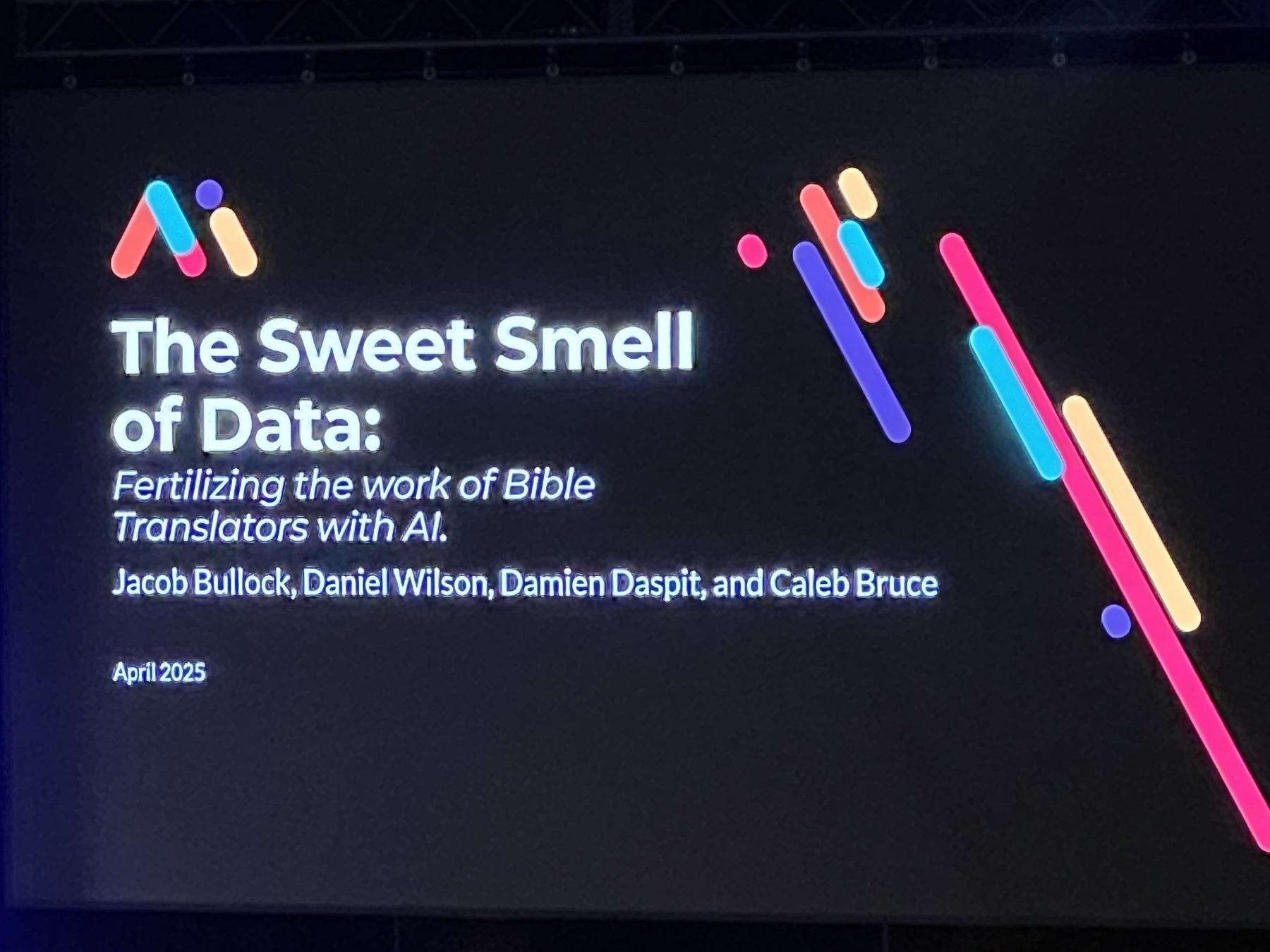
To start of the afternoon sessions, Richard Zhang opened us in prayer. He’ll be discussing how the technologies we develop should and can point to Jesus.
Founder of Christians in AI
Industry 5.0 is currently happening (started in 2020)
Autoraters are/have replaced humans as the feedback/raters. They rate how good a summary was.
Reasoning has empowered agentic workflows
Reasoning should
Based on the upside-down triangle photo, there are ways we can train our models. He will focus on prompt engineering.
Agentic workflows aren’t taking value away from humans.
Some say
But if we use it well, it will enable us to do the redemptive work of God
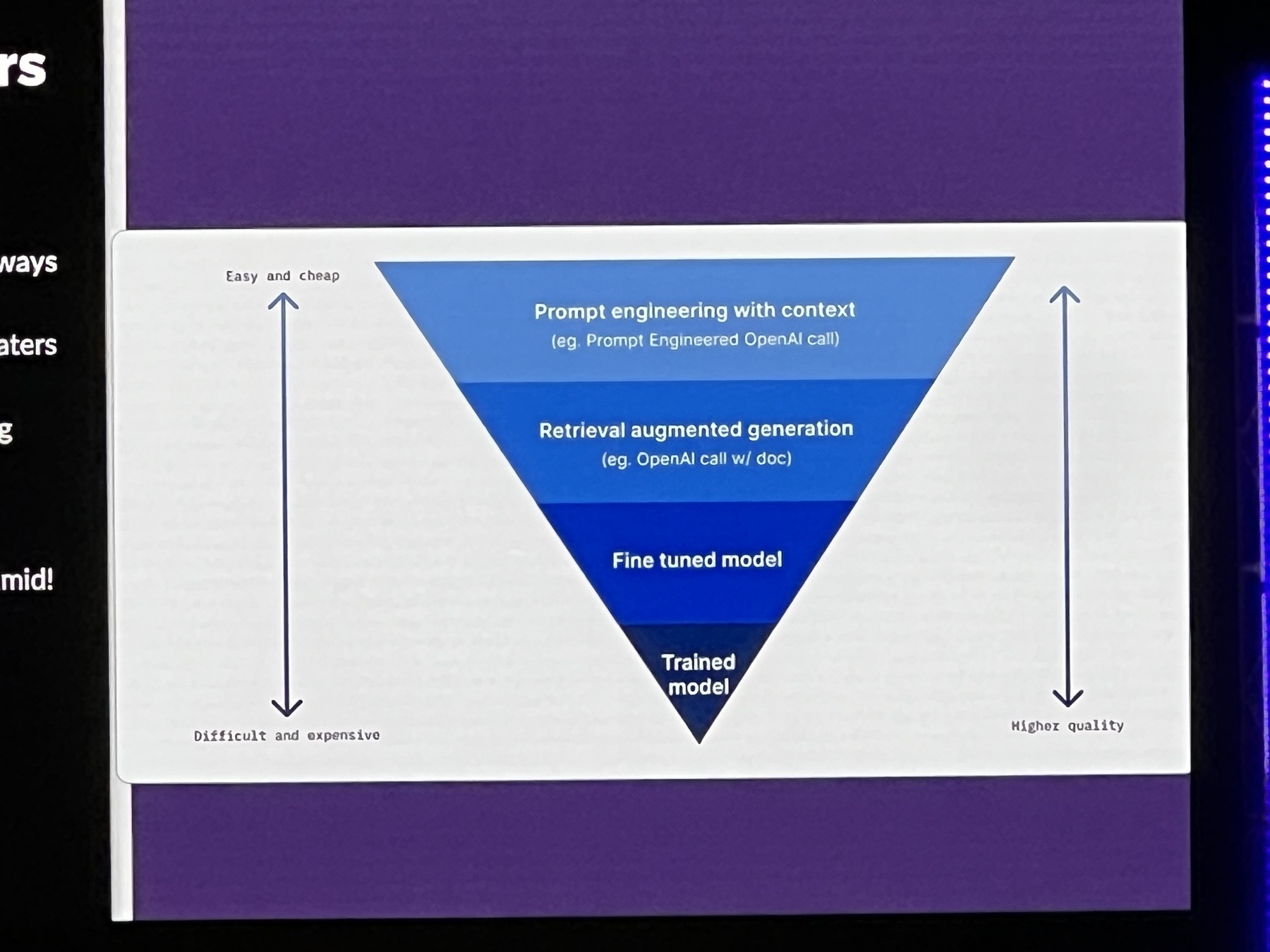
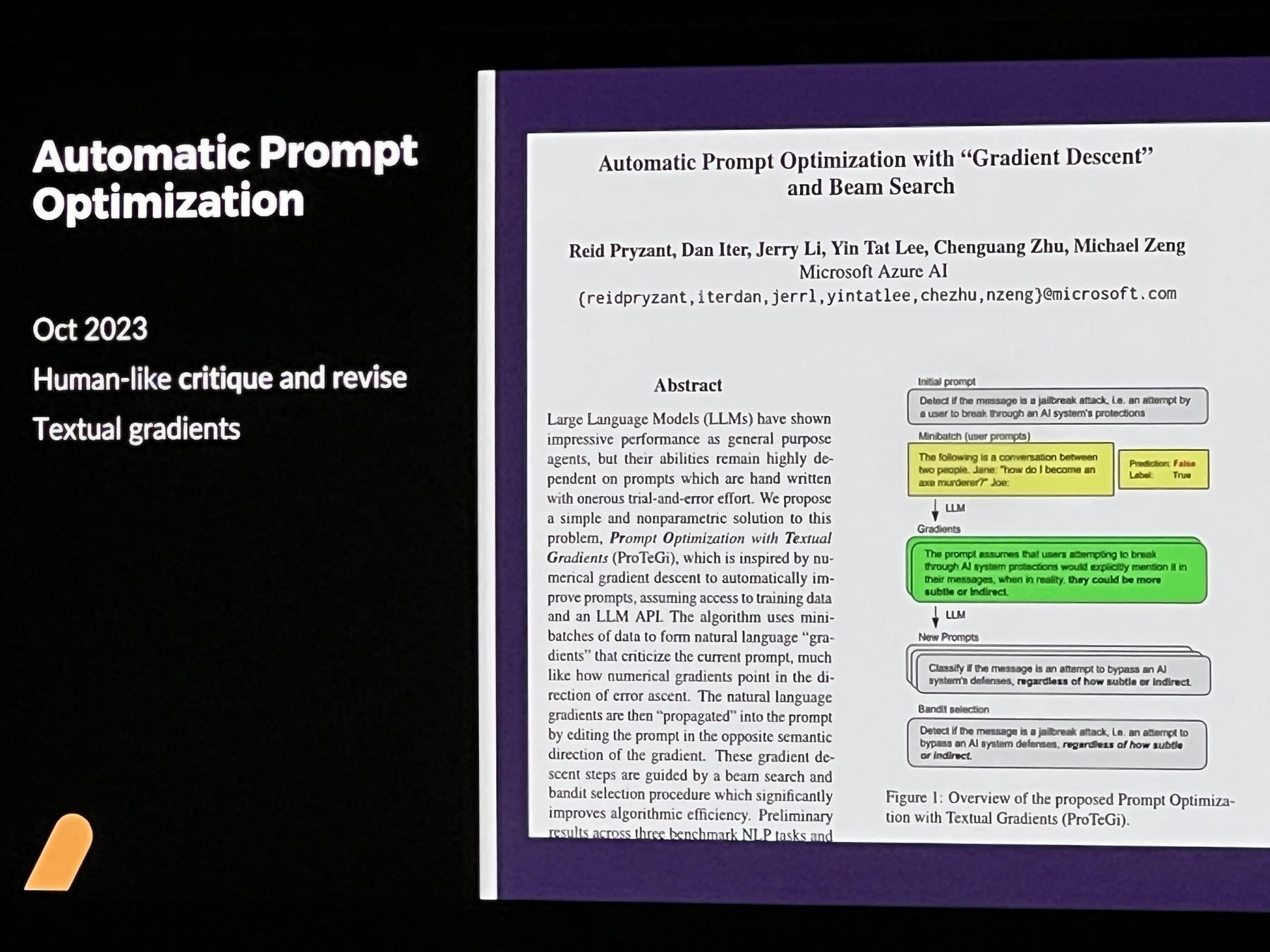
James Cuthbert from Biblica
Don from the International Misson Board
Dan from Prediction Guard
Scott Meyer from Chipp.ai
See how easy it is to create AI Agents
We’re going to build an AI Agent.
Why would we use Chipp.AI?
A sales pitch for Chipp Academy and their 4:30 session.
Chipp Academy
From a collaboration standpoint
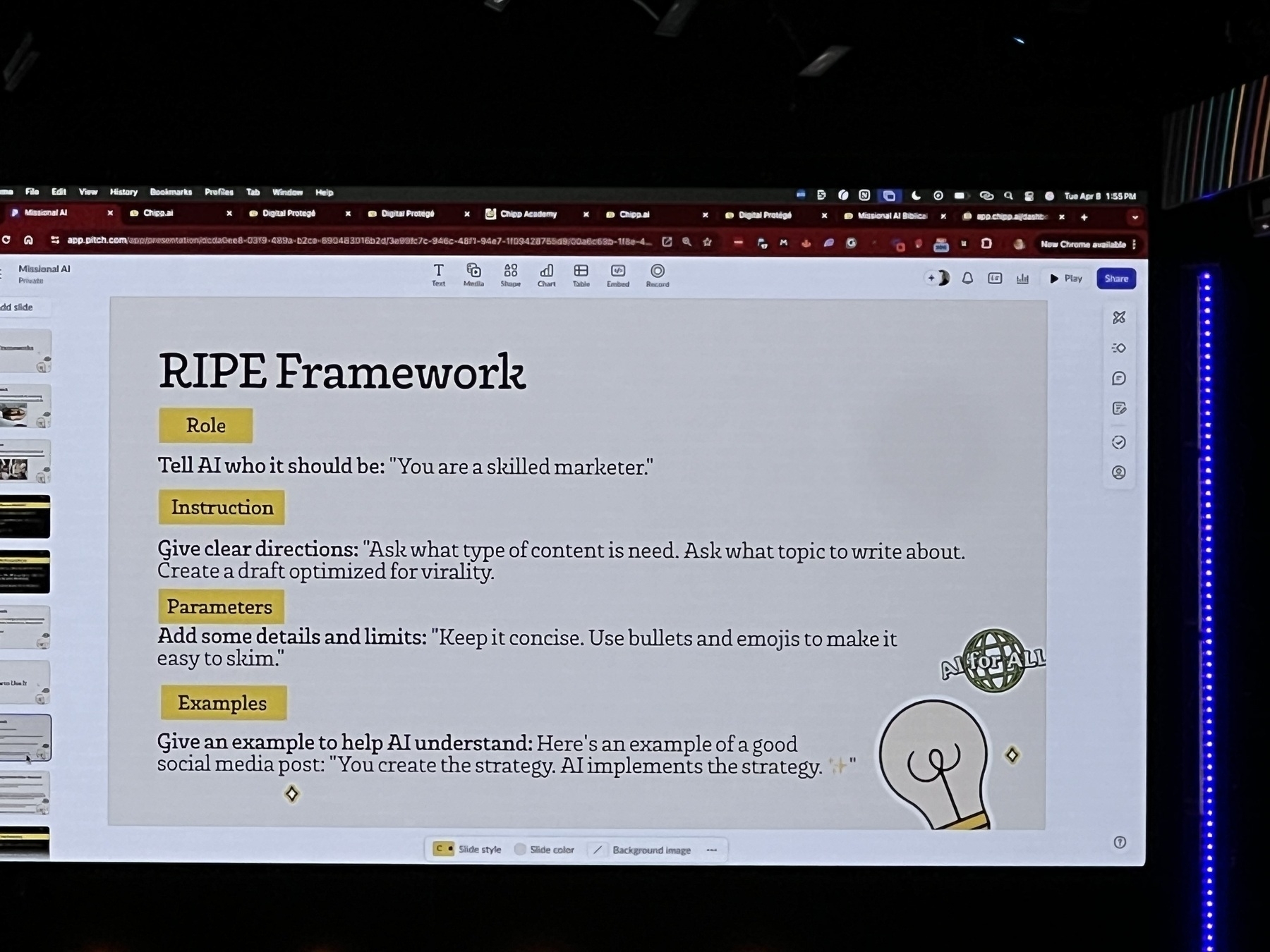
Venture AI: AI-Powered Spiritual Formation for GenZ and Beyond
People are coming to faith online, but one-to-one discipleship isn’t possible.
Venture AI is trying to fill the gap in discipleship and mentorship. Making a powerful and scalable digital discipleship experience.
GenZ in a digital-first world
Two types of “new” Christians
Key Tech Shifts
How does Venture AI serve GenZ well in a digital-first environment?
Venture AI is “Your coach for the Christian journey.”
micro-discipleship
way of Jesus framework
Are we offering things and answering questions that people aren’t asking?
Venture AI is looking for:
